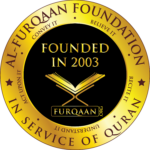
Stories of the Anbiya is a new series exploring the lives of the prophets mentioned in The Quran. Through these narratives, we aim to uncover not only the historical journeys of the prophets but also the timeless truths they reveal about the human soul, the struggle for justice, and the meaning of faith in a fractured world. This series is an invitation to revisit these lives with fresh eyes, and to see their stories echoed in our own.
After the exalted majesty and the supreme noble character of Prophet Adam (as), Prophet Nuh (as), the second prophet in Islam, holds an overwhelmingly significant and spiritually commanding place. As one of the earliest prophets to walk the earth, he was a messenger chosen to guide people lost in darkness. He was one of the five elite prophets known as the Ulul Azm – the personalities widely known and honored by their unshakeable determination towards the deen of Allah (SWT). While Prophet Nuh’s (as) life is famously known for the construction of the ark and the terrifying flood, there are important lessons of struggle, invitation & rejection, heartbreak & hope, and of the towering patience of a man entrusted with divine truth for nearly a millennium. Prophet Nuh’s (as) story begins in a world spiraling into idolatry, unfolds through centuries of calling to tawheed, carries the profound grief of being unheard, and culminates in a flood that resets the moral trajectory of humanity. It is the story of haq in the face of ridicule, of conviction even in isolation, and of a prophet who chose obedience even when no one listened or seemed to care.
Prophet Nuh (as) is mentioned 43 times in The Quran, and his name appears in the spaces where perseverance, societal decay, and divine mercy are often highlighted. His life forms a unique bridge between the early innocence of humanity after Prophet Adam (as) and the coming of later prophetic lineages. Through him, we learn that guidance is not always welcomed, rejection is not failure, and that divine truth must sometimes stand alone until the storm comes. In Islamic theology, Prophet Nuh (as) is remembered for the incredible dawah that he delivered for an unfathomable 950 years. Beyond Islam, in Abrahamic faiths, Prophet Nuh (as), widely known also as Noah, is recognized as the righteous man who was chosen to survive divine wrath. However, Islam focuses more on the legacy of his mission, his powerful and applicable messages, and the mercy that Allah (SWT) showed him, and that he, in turn, showed to the people. Prophet Nuh (as) cried, prayed, pleaded, and waited for nearly a thousand years and, even when his own family turned away from him, his faith in Allah (SWT) never wavered.
Prophet Nuh (as) lived through ridicule, betrayal, loneliness, and loss, yet he stands tall as one of the greatest examples of human resolve shaped by divine instruction. In this in-depth exploration, we will examine not only the public events of his life, but also the deeper theological and spiritual implications that define his legacy. We will look at how Allah (SWT) presents his story in layers across The Quran, what lessons he offers to a world still drowning in distractions, and how his example continues to shape the prophetic ethic of truth, humility, and patient endurance.
The moral decay of society does not happen overnight
The people of Prophet Nuh (as) lived in the generations following Prophet Adam (as), in a time when idolatry had become increasingly normalized. Allah (SWT) recorded Prophet Nuh’s (as) concerns about his people’s disobeyment in The Quran, when he specifically named the idols his people worshipped as, “[…] Wadd, Suwa, Yaghuth, Ya’uq, and Nasr.” (The Clear Quran®, 71:23)

These were not abstract mythical figures, but people who were once revered for their righteousness. Over generations, their names were immortalized through statues and, slowly, the reverence for piety was replaced by outright worship. This important cultural shift, when people turned from reverence to shirk, highlights a devastating reminder. As ibn Abbas explains in narrations found in Tafsir al-Tabari, these were originally pious men whose memories were manipulated in the minds of those who respected them by Shaytan.
The Prophet (SAW) himself has warned of this. He (SAW) has said, “Beware of exaggeration in religion. For those before you were destroyed due to exaggeration in religion.” (Sunan an-Nasa’i)

Excess in remembrance without theological guardrails can quietly distort the very foundations of faith. When Prophet Nuh (as) began calling his people towards tawheed, he was correcting theology and also challenging a deeply embedded social order that was morally incorrect. Their idol worship was based on pride, lineage, political power, and personal convenience. To ask them to abandon their idols, as Prophet Nuh (as) would find out, was to ask them to dismantle their cultural inheritance. This was truly the start of civilization’s upheaval.
Prophet Nuh (as) is the complete model of Dawah to be implemented today
In Surah Nuh, Allah (SWT) gives us a detailed record of how Prophet Nuh (as) delivered his message. He (SWT) reveals, “He cried, ‘My Lord! I have surely called my people day and night, but my calls only made them run farther away. And whenever I invite them to be forgiven by You, they press their fingers into their ears, cover themselves with their clothes, persist in denial, and act very arrogantly.’” (The Clear Quran®, 71:5-7)

His approach was public and private, he didn’t focus on just the punishment of Allah (SWT), but would also repeatedly speak of Allah’s (SWT) blessings. “What is the matter with you that you are not in awe of the Majesty of Allah, when He truly created you in stages of development?” (The Clear Quran®, 13-14)

He spoke to their intellect and experience. Yet his people responded not with ignorance, but with willful defiance. Their reaction was layered where they would cover their ears, then they would cover their bodies, and would continue living their life in arrogance. These are not just disbelievers, these are active rejectors.
This highlights to us that people didn’t reject prophets because of their lack of clarity (that cannot be a concept because Allah (SWT) always delivers His message clearly) but due to their own egos, tribal loyalty, or the cost of reform. Prophet Muhammad (SAW) echoed this dynamic in his own mission when he (SAW) said, “None of you truly believes until his desires are in accordance with what I have brought.” (al-Nawawi)

950 years of consistent dialogue, sabr, and the height of tawakkul
In The Quran, Allah (SWT) says, “Indeed, We sent Nuh to his people, and he remained among them for a thousand years, less fifty. Then the Flood overtook them, while they persisted in wrongdoing.” (The Clear Quran®, 29:14)

Can you imagine doing dawah over the course of nine and a half centuries with only a handful of followers? Simply standing outside with a volunteer group for 9.5 hours can exhaust the mind. According to some traditions from ibn Kathir, it is said that no more than 80 people believed by the end of his mission.
This now raises a fundamental question. What does it mean to be successful in the eyes of Allah (SWT)? In a world that measures impact by audience size and applause, Prophet Nuh’s (as) life would have been considered a total failure, yes? However, in the eyes of Allah (SWT), His vicegerent was successful not because of how many believed, but because he never stopped calling people to the path of haq. This is captured in a hadith within Sahih Muslim, in which it is recorded that the Prophet (SAW) described seeing prophets on the Day of Judgment with no followers at all. Truthfulness is not always rewarded in the world, it is validated by Allah (SWT) alone.
The abandonment of a son from his father
The tragic flood indeed stands as the climax of Prophet Nuh’s (as) mission, but the most emotionally devastating moment is not the destruction of civilization, but the abandoning of a prophet’s own son. As the ark begins to sail, Prophet Nuh (as) sees his son standing off to a distance. The Quran then says, “And so the Ark sailed with them through waves like mountains. Noah called out to his son, who stood apart, ‘O my dear son! Come aboard with us and do not be with the disbelievers.’ He replied, ‘I will take refuge on a mountain, which will protect me from the water.’ Nuh cried, ‘Today no one is protected from Allah’s decree except those to whom He shows mercy!’ And the waves came between them, and his son was among the drowned.’” (The Clear Quran®, 11:42-43)

Prophet Nuh’s (as) heartbreak is immortalized in the next verse when he turns to Allah (SWT) and says, “Nuh called out to his Lord, saying, ‘My Lord! Certainly my son is also of my family, Your promise is surely true, and You are the most just of all judges!’ Allah replied, ‘O Noah! He is certainly not of your family—he was entirely of unrighteous conduct. So do not ask Me about what you have no knowledge of! I warn you so you do not fall into ignorance.’” (The Clear Quran®, 11:45-46)

This interaction realigns our theology. Family is sacred, but you can’t save one who does not wish to be saved. Faith is not something that is inherited, it is something that you must learn, understand, and believe by yourself and, ultimately, guidance belongs solely to Allah (SWT). Even a prophet cannot guarantee salvation for those he loves. As the Prophet Muhammad (SAW) was told, “You surely cannot guide whoever you like, O’ Prophet, but it is Allah who guides whoever He wills, and He knows best who are fit to be guided.” (The Clear Quran®, 28:56)

Building the Ark: Faith in the unseen
When Allah (SWT) commanded Prophet Nuh (as) to build the ark, the skies were still clear. In The Quran it says, “And build the Ark under Our watchful Eyes and directions, and do not plead with Me for those who have done wrong, for they will surely be drowned.” (The Clear Quran®, 11:37)

This moment is critical. Prophet Nuh (as) was not only preaching the unseen, he was now acting upon it. Building a massive ship with no ocean in sight became a physical expression of yaqeen, certainty in Allah’s (SWT) promise. The people mocked him, “So he began to build the Ark, and whenever some of the chiefs of his people passed by, they mocked him. He said, “If you laugh at us, we will soon laugh at you similarly.” (The Clear Quran®, 11:38)

This is a great example of tawakkul. Faith that does not wait for signs to appear, but moves forward because Allah (SWT) has spoken. When the command came and the floodgates opened, it was too late to board. The Ark became not just a vessel of survival, but a living metaphor for salvation.
The aftermath of the flood
Allah (SWT) says, “And When Our command came the oven burst with water, We said to Nuh, ‘Take into the Ark a pair from every species along with your family—except those against whom the decree to drown has already been passed—and those who believe.’ But none believed in him except for a few.” (The Clear Quran®, 11:40)

This flood did not just destroy the disbelievers, it reset the moral landscape for mankind. As the Ark sailed on waves like mountains, those inside were not merely survivors, they were chosen to rebuild. When the waters receded and the Ark came to rest on Mount Judi, Prophet Nuh’s (as) task did not end. He was to lead a new generation in righteousness. His final supplication in Surah Nuh says, “My Lord! Forgive me, my parents, and whoever enters my house in faith, and all believing men and women. And increase the wrongdoers only in destruction.” (The Clear Quran®, 71:28)

Even after judgment, Prophet Nuh (as) remained a man of mercy and humility.
Prophet Nuh (as) teaches us that divine work is measured by sincerity, not speed. That public rejection does not invalidate private devotion. That guidance is a gift, not a guarantee, and that spiritual leadership is not about charisma or outcomes, but about the quiet, consistent call to truth.
In a time when truth is often filtered through trends, Prophet Nuh’s (as) story reaffirms that fidelity to revelation is not about popularity. It is about loyalty to Allah (SWT). He shows us that true dawah is not reactionary, it is patient, strategic, and deeply personal. He reminds every parent, teacher, leader, and activist that the outcome always belongs to Allah (SWT).
May we be among those who recognize the Ark before the rain, who respond to the call before the flood, and who follow the path of those who speak the truth, even when the crowd walks away.
Ameen!
Dua
O Allah! Make us steadfast and patient in Your path as Your noble messenger Prophet Nuh (AS) was steadfast through every storm. Place this work of ours among the scales of good deeds, just as You made Prophet Nuh’s (AS) message a beacon of perseverance, truth, and tawheed for humanity until the Day of Judgment.
O Allah! Grant us pure intentions and true reliance on You. O Allah! Do not let our hearts deviate after You have guided us. Make us, and all that we produce, from the legacy of those who established prayer, gave charity, and were humbly devoted to You.
Ameen!



